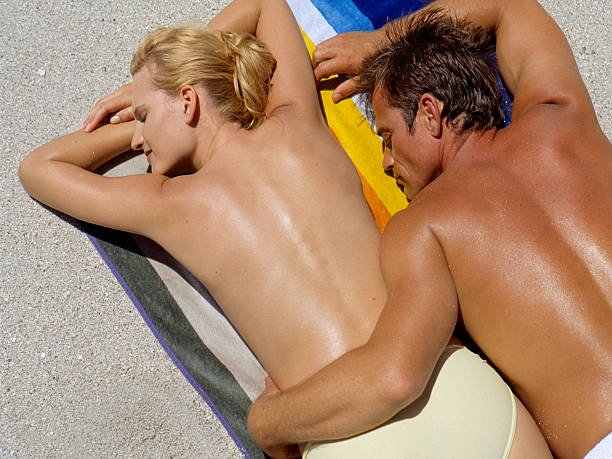I've been thinking about the delight I feel with summer coming
BY RICK THYNE
Looking back over eight-plus decades, one of my personal history’s recurring themes is how hard it is to sustain a life that makes room for delight.
The first car I owned was a 1948 godawful-green Plymouth coupe that I bought from Mike Friedman for fifty dollars when I was six months shy of my sixteenth birthday and getting my California driver’s license. Soon exhaust fumes began leaking up through the floorboard, requiring me to keep the wind-wings (remember those?) open, which meant that when I at last got a date with Joan, the campus goddess, her patiently coiffed hair unraveled as if she were trudging through a wind storm. It was our first and final date.
Like my relationship with Joan, the car didn’t last long. But thankfully, in early 1958 my parents replaced their hideous gray Nash Rambler with the car I think of with summer delight: a well-used 1951 De Soto station wagon with three rows of seats. The bronze paint had faded to dull tan, one seat cover was shredding, and it guzzled gas like one of General Patton's tanks.
During the summer between my junior and senior years of high-school, if I got up early and took my dad to work, he’d let me have the car for the rest of the day. Ah! Wheels! A high-school boy’s liberation! And my ride through one glorious summer! I’d pull up to the Sunset Boulevard curb outside Hollywood High School’s summer session just as classes ended. The seat next to me was for my girlfriend, which meant that seven or eight additional sun-loving pals would cram into the remaining seats and we’d follow Sunset all the way to the beach. Day after day. All summer long.
We’d play volleyball, then, covered with sweat-sticking sand, dive into the waves and body surf. Now exhausted – and this is the most indelible memory – I’d lie side by side on one large beach towel snug against my girlfriend and lather her with baby oil or cocoa butter, all the better to crisp her skin into the tan she wanted. More wonderfully, she’d repeat the favor for me – the smooth touch of her hand on my skin, my adolescent biology and imagination sweltering like the summer sun.
Those long-past summer moments were about my body’s sensuous pleasures: sun, sand, water, skin. My friends were always mingled in with these sensual pleasures, not just my girlfriend but guys I played basketball and cut classes with throughout the school year, and both girls and guys I went to church with and prayed with and went to summer camp with to learn about Jesus; at one of those camps, surrounded by my pals, I heard in the early evening breeze in the birch trees the breath of God’s Spirit confirming that I was made for the Christian ministry.
I remember, too, the lack of obligation on those beach days. I had nothing to get home for except to maybe play three-on-three basketball until dinner, sit at Bob’s Big Boy eating two-patty burgers with fries and drinking/spooning thick chocolate milk shakes. Then maybe I’d go by my girlfriend’s house after her parents were asleep and sneak in an hour of affection.
We have to take care of ourselves through winter; it’s as if summer’s purpose is to take care of us.
No obligations, and therefore no demands on my time. But all of that changed.
For the four years I was in college I was under constant obligation and had virtually no free time. I was now on my own for tuition, gas for my Volkswagen bug, and for date money; so I worked constantly. During my junior and senior years, I worked weekends as a box boy at Safeway supermarket, a clerk in the UCLA Campus Store every weekday afternoon, and as night custodian at the church gym Monday through Thursday. I was taking eighteen units a semester and felt under obligation to study hard for the grades I needed to qualify for Princeton Seminary.
Becky and I got married the summer I graduated, and spent three years on student loans at Princeton, where I worked as a waiter in the dining hall, serving my classmates. I 1966 I got my first job, as an Assistant Pastor at Lawrenceville, New Jersey, Presbyterian Church at a salary of $5,000 a year, a salary so inadequate we had to ask the church for extra money for wintertime heating oil as our family grew. In that first year, we became parents to a daughter and then, sixteen months later, to a son. Little money, little disposable time, little pleasurable leisure.
In time, I became a pastor in San Marino, California, Becky started her own business, we adopted our third child, and we lived a busy but wonderful life, with work that mattered and friends whom we loved who loved us. We actually got a month’s vacation every summer and through the generosity of friends in the church spent two of those four weeks in their condo at Lake Tahoe, a breather from the pace and pressure of our work. Not quite like those high-school summers at the beach, but still, wonderful. But by this time, I was mired in the belief that I needed to use every available moment to accomplish the seemingly unending responsibilities that came with being pastor to nearly two-thousand church members. I phoned the office every day to assure myself that the place could run without me (which I must have doubted) and to intervene in any emergency.
Even though my work changed at forty from the ministry to being a therapist, the compulsion to usefulness never did. There was always an arithmetic of money and time that controlled my thinking: early in my career, I didn’t have enough money, so I worked most of the available hours of every day, with little discretionary time for pleasure. In mid-career, I worked full time, had enough money that I could allocate more discretionary time to pleasure but, again because of my anxiety that I might be neglecting someone or something, I couldn't fully enjoy it. By the time I turned sixty, I had more than enough money, therefore more discretionary time, and could have extended my pleasure exponentially. But still, the anxiety: it’s stitched into me that I have to work constantly to make money so I only grudgingly enjoy whatever leisure time my anxiety allows me.
Even now, I’m working full-time. I see twenty-five therapy clients Tuesday through Friday each week, and spent about ten hours a week writing. I love therapy and writing, because both are deeply rewarding and because I have never escaped the belief, instilled by Dr. Larch in his prodigy, Homer, in John Irving’s novel, The Cider House Rules:
Be of use, Homer. Be of use.
So these days, when the math works out fully in my favor, I still find it very difficult to put down the obligation to usefulness which now too often wears me down. I'm tired at the end of a work week and, through my own unconquerable habit, find barely enough left-over energy to play. I use most of my time off to recuperate and recover, in preparation for doing it all again next week.
I'm reminded often of these lines in the poet Jack Gilbert’s poem, “A Brief for the Defense”:
We must risk delight. We can do without pleasure,
but not delight. Not enjoyment. We must have
the stubbornness to accept our gladness in the ruthless
furnace of this world.
Yes, the furnace is ruthless. But I will be consumed by its heat unless I am stubbornly committed to finding my moments, my days, my seasons of delight. For me, this is what summer announces, with its warmer weather and its long spans of daylight. We have to take care of ourselves through winter; it’s as if summer’s purpose is to take care of us. What a delight it can be. Why, then, is it so difficult for me to accept my own gladness? To lay aside the need to be useful and embrace the need for delight? I’m still working on it.
We must have the stubbornness to accept our gladness in the ruthless furnace of this world.
I’ve aged out of volleyball and surfing, and I’m finally wise enough not to fry myself in the sun. Still, even now, I measure the seasons of our family calendar by the schedules of our school-aged grandchildren, which means that when June comes, summer’s here. It's still not easy to tend to my delight, but I try.
I’m going to a week-long conference at a glorious location at the end of June, and we’ll spend a family week at the beach later in July. But first, there is the beginning of summer over Memorial Day weekend, which is just for Becky and me. So on the recent Friday of that long weekend, we left early to beat at least the worst of the traffic and for the twenty-third year, with one Covid year as exception, drove to San Diego. No kids. No grandkids. No friends stuffed along for the ride or to clutter the aimless days; we’re decades past the replication of De Soto-like crowding of our days away. Just the two of us to begin yet another summer, without a schedule, with no obligations except to delight.







